February is American Heart Month. We can do an abundance of good for our heart by eating more fruits and vegetables, whole grains, lean meats and fish, while cutting out foods that are high in salt, sugar, and saturated fats. Check out my favorite top 10 heart healthy foods to eat.
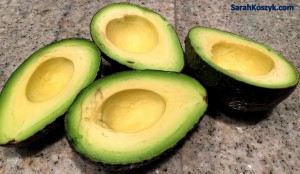
Avocado: These are loaded with mono-unsaturated fats, which may help reduce the “bad” LDL cholesterol and triglycerides. Lowering both may reduce your risk of heart disease. Try replacing butter with avocado on your morning toast. Add some spices or herbs for a flavorful twist your heart will love.- Whole Grains: Whole versions of grains are far more abundant in phytochemicals, nutrients, and fiber, than their refined counterparts. Studies have shown that at least 4 servings of whole grains per day may help reduce your risk of developing hypertension or cardiovascular disease. Substitute brown rice for white rice or try quinoa in your next salad.
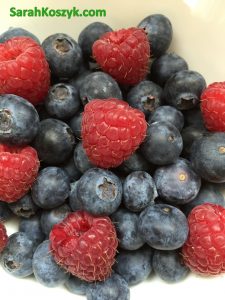
Berries: Not only are berries bursting with flavor, but they are also filled with vitamins, antioxidants, and fiber, which may help reduce your risk of cardiovascular disease. Anthocyanins, a compound found in berries, may help reduce oxidative stress in the arteries and protect the arterial walls from plaque buildup. Enjoy berries year round by buying them fresh in the summer or frozen in the colder months. Add berries to a smoothie or eat over yogurt.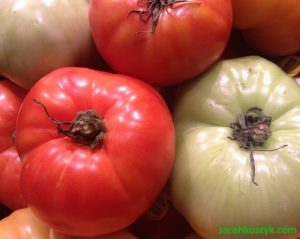
Tomatoes: Lycopene in tomatoes is a powerful phytochemical that can actually increase in the heat. This heart-protective compound may reduce blood pressure and inflammation. By cooking the tomatoes, the amount of available lycopene increases. Get creative and make your own tomato sauce.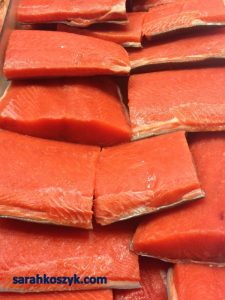
Fish: Get your dose of heart-healthy Omega-3s by adding 12 ounces of fish to your weekly menu. Omega-3 fatty acids are known to reduce inflammation in the body. Need to whip up a quick dinner if you’re short on time? Wild salmon, trout, herring, tuna, and sardines are your easy and heart-healthy solutions. Try to aim for 3 servings (4 ounces) of fish per week.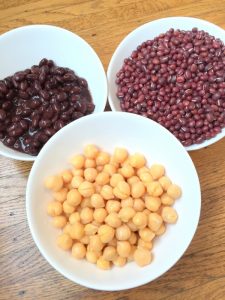
Beans: Adding more beans to your diet may improve cholesterol levels. They are a great source of plant-based protein and fiber. Try to incorporate ½ a cup of beans per day, which packs in about 7 grams of both fiber and protein. Include beans in a taco, a salad, or a stew.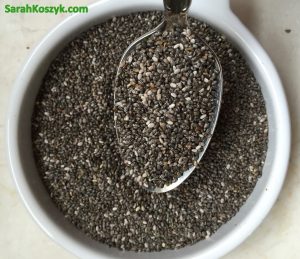
Seeds: Flax, hemp, and chia seeds are a particularly great source of omega-3 fatty acids. Ground flax and chia are wonderful to bake with, and often times they replace the unhealthy saturated fats like butter and egg yolks. Hemp seeds have a nutty flavor and taste delicious in salads. Add any of the seeds to yogurt, a smoothie, oatmeal, or cottage cheese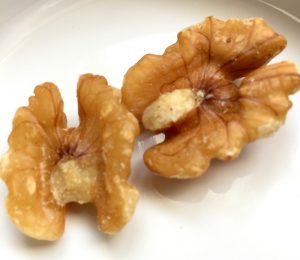
Nuts: Vitamin E plays a huge role in protecting the arterial walls by preventing plaque buildup, and nuts are full of Vitamin E. Liven up your pesto sauce recipe by experimenting with different types of nuts to replace pine nuts, which tend to be more expensive- Pomegranates: These beautifully colored seeds can brighten up your salad or add a pleasant crunch when stirred into a smoothie. These seeds hold a ton of antioxidant power, like anthocyanins and tannins, which are good for the heart
- Tea: Get your morning dose of antioxidants with a little caffeine kick. The EGCG content of green tea may have many benefits that protect the heart and vessels. Black tea is also shown to have heart-protecting compounds.
Want to really feed your heart some love? Try making a smoothie bowl for breakfast. Blend frozen berries, a banana and a tad of almond butter together with some almond milk. Stir in pomegranate seeds. Top with chopped nuts of your liking and hemp seeds. Filling and delightfully crunchy.
By Nikki Karetov, Soon-To-Be Registered Dietitian Nutritionist

